Insights
The latest in financial regulation, explained by Patomak’s team of former regulators and senior-level industry experts.
The latest in financial regulation, explained by Patomak’s team of former regulators and senior-level industry experts.




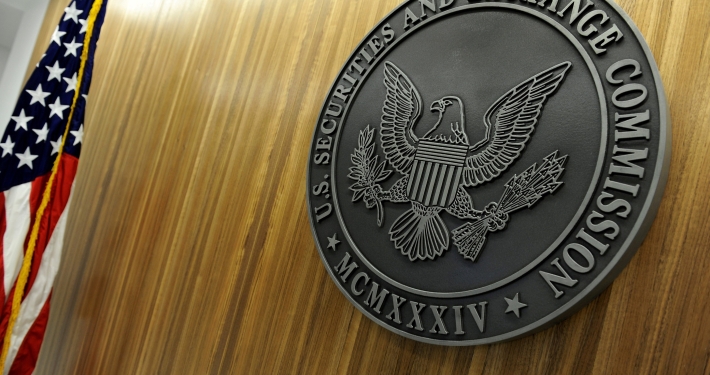






 https://patomak.com/wp-content/uploads/2023/05/may-17-2023.png
1000
1600
Malin Phelan
https://patomak.com/wp-content/uploads/2022/12/PGP-Header-Logo-Stacked.png
Malin Phelan2023-05-17 10:48:492024-07-22 10:59:57SEC Increases Oversight of Registered Investment Advisers
https://patomak.com/wp-content/uploads/2023/05/may-17-2023.png
1000
1600
Malin Phelan
https://patomak.com/wp-content/uploads/2022/12/PGP-Header-Logo-Stacked.png
Malin Phelan2023-05-17 10:48:492024-07-22 10:59:57SEC Increases Oversight of Registered Investment Advisers







 https://patomak.com/wp-content/uploads/2023/05/may-17-2023.png
1000
1600
Malin Phelan
https://patomak.com/wp-content/uploads/2022/12/PGP-Header-Logo-Stacked.png
Malin Phelan2023-05-17 10:48:492024-07-22 10:59:57SEC Increases Oversight of Registered Investment Advisers
https://patomak.com/wp-content/uploads/2023/05/may-17-2023.png
1000
1600
Malin Phelan
https://patomak.com/wp-content/uploads/2022/12/PGP-Header-Logo-Stacked.png
Malin Phelan2023-05-17 10:48:492024-07-22 10:59:57SEC Increases Oversight of Registered Investment Advisers







 https://patomak.com/wp-content/uploads/2023/05/may-17-2023.png
1000
1600
Malin Phelan
https://patomak.com/wp-content/uploads/2022/12/PGP-Header-Logo-Stacked.png
Malin Phelan2023-05-17 10:48:492024-07-22 10:59:57SEC Increases Oversight of Registered Investment Advisers
https://patomak.com/wp-content/uploads/2023/05/may-17-2023.png
1000
1600
Malin Phelan
https://patomak.com/wp-content/uploads/2022/12/PGP-Header-Logo-Stacked.png
Malin Phelan2023-05-17 10:48:492024-07-22 10:59:57SEC Increases Oversight of Registered Investment Advisers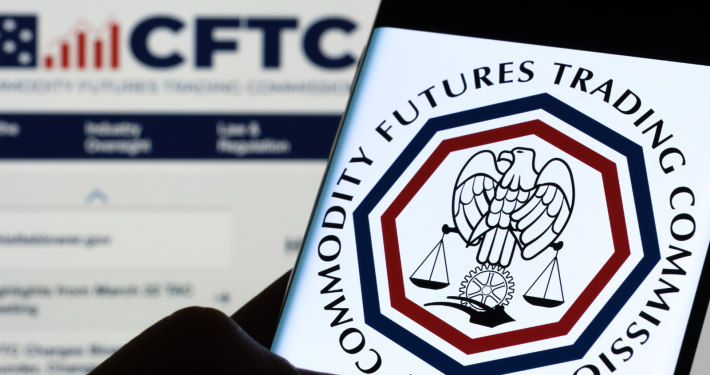




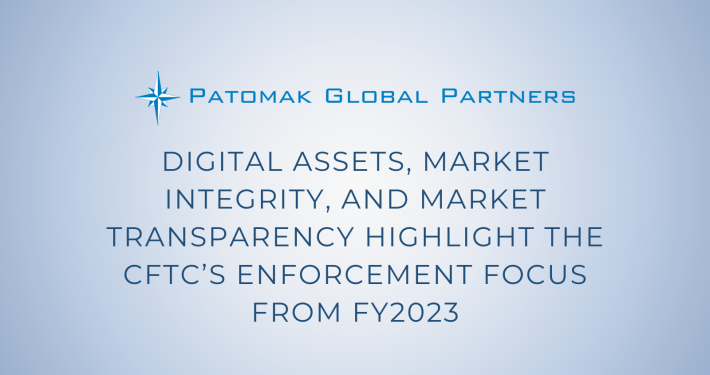
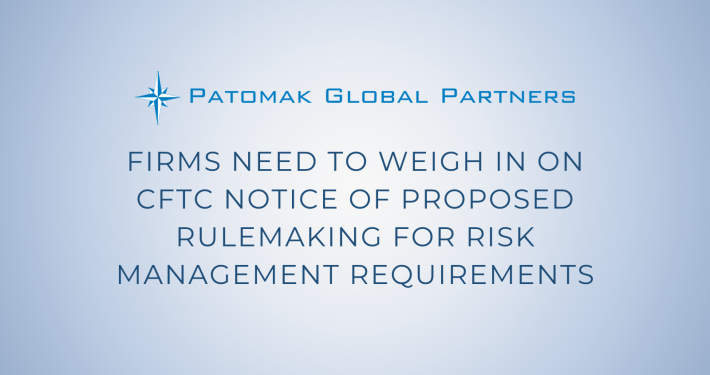























 https://patomak.com/wp-content/uploads/2024/11/image.png
1000
1600
Heather Espinosa
https://patomak.com/wp-content/uploads/2022/12/PGP-Header-Logo-Stacked.png
Heather Espinosa2024-11-05 13:49:242024-12-11 17:36:43OCC Expands Recovery Planning Requirements
https://patomak.com/wp-content/uploads/2024/11/image.png
1000
1600
Heather Espinosa
https://patomak.com/wp-content/uploads/2022/12/PGP-Header-Logo-Stacked.png
Heather Espinosa2024-11-05 13:49:242024-12-11 17:36:43OCC Expands Recovery Planning Requirements

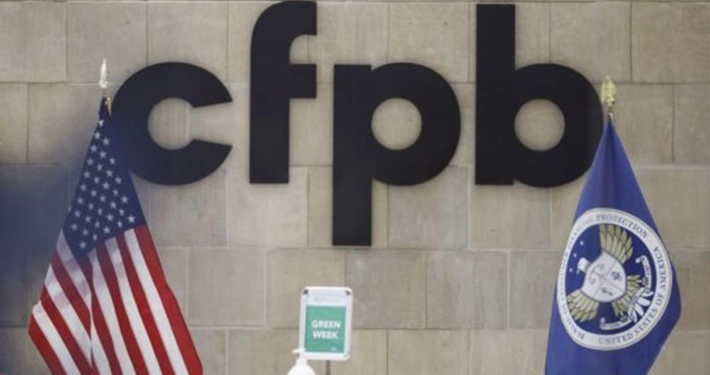 https://patomak.com/wp-content/uploads/2024/07/cfpb.webp
1000
1600
Brian Johnson
https://patomak.com/wp-content/uploads/2022/12/PGP-Header-Logo-Stacked.png
Brian Johnson2024-07-09 16:11:302024-07-30 14:11:51Examining the New Debate on CFPB Funding
https://patomak.com/wp-content/uploads/2024/07/cfpb.webp
1000
1600
Brian Johnson
https://patomak.com/wp-content/uploads/2022/12/PGP-Header-Logo-Stacked.png
Brian Johnson2024-07-09 16:11:302024-07-30 14:11:51Examining the New Debate on CFPB Funding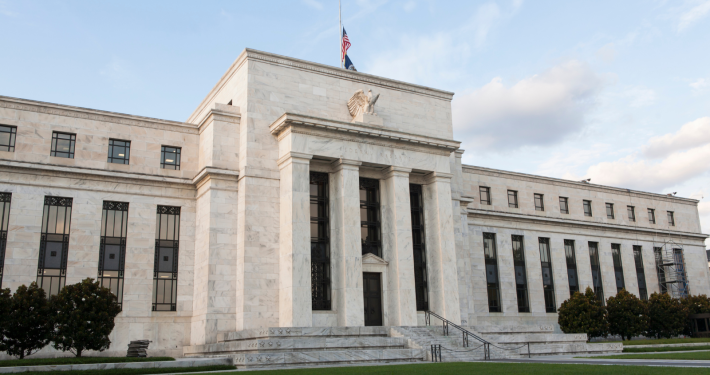




 https://patomak.com/wp-content/uploads/2024/11/image.png
1000
1600
Heather Espinosa
https://patomak.com/wp-content/uploads/2022/12/PGP-Header-Logo-Stacked.png
Heather Espinosa2024-11-05 13:49:242024-12-11 17:36:43OCC Expands Recovery Planning Requirements
https://patomak.com/wp-content/uploads/2024/11/image.png
1000
1600
Heather Espinosa
https://patomak.com/wp-content/uploads/2022/12/PGP-Header-Logo-Stacked.png
Heather Espinosa2024-11-05 13:49:242024-12-11 17:36:43OCC Expands Recovery Planning Requirements

 https://patomak.com/wp-content/uploads/2024/07/cfpb.webp
1000
1600
Brian Johnson
https://patomak.com/wp-content/uploads/2022/12/PGP-Header-Logo-Stacked.png
Brian Johnson2024-07-09 16:11:302024-07-30 14:11:51Examining the New Debate on CFPB Funding
https://patomak.com/wp-content/uploads/2024/07/cfpb.webp
1000
1600
Brian Johnson
https://patomak.com/wp-content/uploads/2022/12/PGP-Header-Logo-Stacked.png
Brian Johnson2024-07-09 16:11:302024-07-30 14:11:51Examining the New Debate on CFPB Funding




 https://patomak.com/wp-content/uploads/2024/11/image.png
1000
1600
Heather Espinosa
https://patomak.com/wp-content/uploads/2022/12/PGP-Header-Logo-Stacked.png
Heather Espinosa2024-11-05 13:49:242024-12-11 17:36:43OCC Expands Recovery Planning Requirements
https://patomak.com/wp-content/uploads/2024/11/image.png
1000
1600
Heather Espinosa
https://patomak.com/wp-content/uploads/2022/12/PGP-Header-Logo-Stacked.png
Heather Espinosa2024-11-05 13:49:242024-12-11 17:36:43OCC Expands Recovery Planning Requirements

 https://patomak.com/wp-content/uploads/2024/07/cfpb.webp
1000
1600
Brian Johnson
https://patomak.com/wp-content/uploads/2022/12/PGP-Header-Logo-Stacked.png
Brian Johnson2024-07-09 16:11:302024-07-30 14:11:51Examining the New Debate on CFPB Funding
https://patomak.com/wp-content/uploads/2024/07/cfpb.webp
1000
1600
Brian Johnson
https://patomak.com/wp-content/uploads/2022/12/PGP-Header-Logo-Stacked.png
Brian Johnson2024-07-09 16:11:302024-07-30 14:11:51Examining the New Debate on CFPB Funding






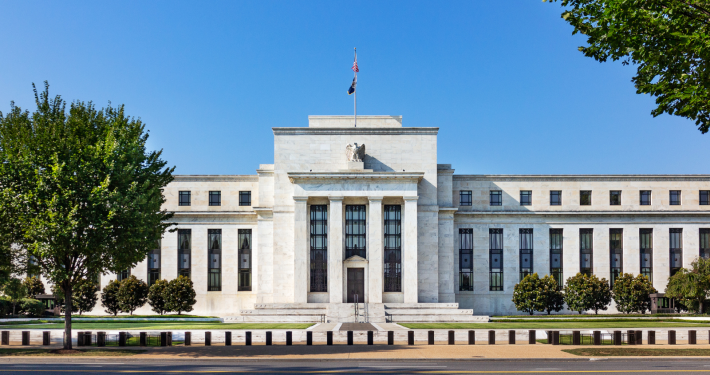
 https://patomak.com/wp-content/uploads/2022/11/Crypto-Requires-Robust-Risk-Management-Framework.png
1000
1600
Sudhir Jain
https://patomak.com/wp-content/uploads/2022/12/PGP-Header-Logo-Stacked.png
Sudhir Jain2022-11-22 09:34:052024-07-22 16:53:01Crypto Requires Robust Risk Management Framework
https://patomak.com/wp-content/uploads/2022/11/Crypto-Requires-Robust-Risk-Management-Framework.png
1000
1600
Sudhir Jain
https://patomak.com/wp-content/uploads/2022/12/PGP-Header-Logo-Stacked.png
Sudhir Jain2022-11-22 09:34:052024-07-22 16:53:01Crypto Requires Robust Risk Management Framework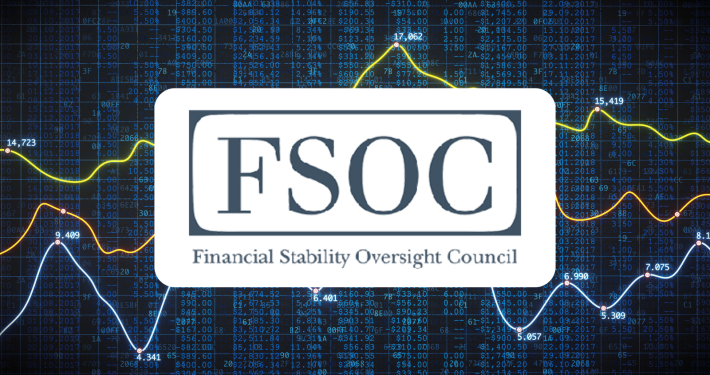







 https://patomak.com/wp-content/uploads/2022/11/Crypto-Requires-Robust-Risk-Management-Framework.png
1000
1600
Sudhir Jain
https://patomak.com/wp-content/uploads/2022/12/PGP-Header-Logo-Stacked.png
Sudhir Jain2022-11-22 09:34:052024-07-22 16:53:01Crypto Requires Robust Risk Management Framework
https://patomak.com/wp-content/uploads/2022/11/Crypto-Requires-Robust-Risk-Management-Framework.png
1000
1600
Sudhir Jain
https://patomak.com/wp-content/uploads/2022/12/PGP-Header-Logo-Stacked.png
Sudhir Jain2022-11-22 09:34:052024-07-22 16:53:01Crypto Requires Robust Risk Management Framework







 https://patomak.com/wp-content/uploads/2022/11/Crypto-Requires-Robust-Risk-Management-Framework.png
1000
1600
Sudhir Jain
https://patomak.com/wp-content/uploads/2022/12/PGP-Header-Logo-Stacked.png
Sudhir Jain2022-11-22 09:34:052024-07-22 16:53:01Crypto Requires Robust Risk Management Framework
https://patomak.com/wp-content/uploads/2022/11/Crypto-Requires-Robust-Risk-Management-Framework.png
1000
1600
Sudhir Jain
https://patomak.com/wp-content/uploads/2022/12/PGP-Header-Logo-Stacked.png
Sudhir Jain2022-11-22 09:34:052024-07-22 16:53:01Crypto Requires Robust Risk Management Framework

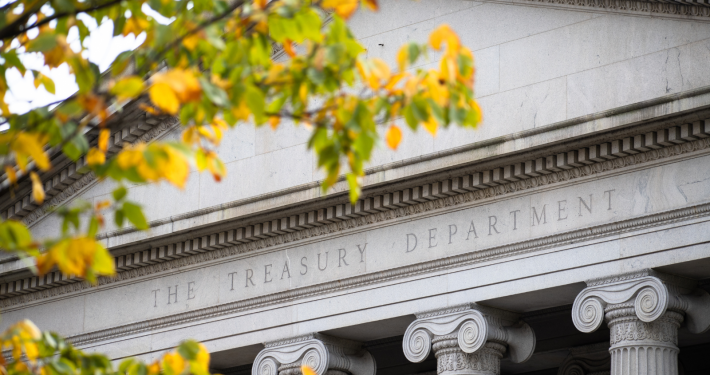





















 https://patomak.com/wp-content/uploads/2025/04/february-6-2024-2.png
1000
1600
Patomak Global Partners
https://patomak.com/wp-content/uploads/2022/12/PGP-Header-Logo-Stacked.png
Patomak Global Partners2025-04-22 17:05:302025-04-22 17:22:08Patomak Global Partners Announces New Supervisory Board and Executive Committee
https://patomak.com/wp-content/uploads/2025/04/february-6-2024-2.png
1000
1600
Patomak Global Partners
https://patomak.com/wp-content/uploads/2022/12/PGP-Header-Logo-Stacked.png
Patomak Global Partners2025-04-22 17:05:302025-04-22 17:22:08Patomak Global Partners Announces New Supervisory Board and Executive Committee
 https://patomak.com/wp-content/uploads/2024/10/may-23-2024-1.png
1000
1600
Katherine McCarthy
https://patomak.com/wp-content/uploads/2022/12/PGP-Header-Logo-Stacked.png
Katherine McCarthy2024-10-29 13:31:192024-11-21 13:42:35Robert Greene Quoted in Foreign Policy
https://patomak.com/wp-content/uploads/2024/10/may-23-2024-1.png
1000
1600
Katherine McCarthy
https://patomak.com/wp-content/uploads/2022/12/PGP-Header-Logo-Stacked.png
Katherine McCarthy2024-10-29 13:31:192024-11-21 13:42:35Robert Greene Quoted in Foreign Policy https://patomak.com/wp-content/uploads/2024/10/NSCP-National-Conference.png
450
1076
Katherine McCarthy
https://patomak.com/wp-content/uploads/2022/12/PGP-Header-Logo-Stacked.png
Katherine McCarthy2024-10-18 15:40:462024-10-18 15:41:44Laura Magyar at NSCP Conference
https://patomak.com/wp-content/uploads/2024/10/NSCP-National-Conference.png
450
1076
Katherine McCarthy
https://patomak.com/wp-content/uploads/2022/12/PGP-Header-Logo-Stacked.png
Katherine McCarthy2024-10-18 15:40:462024-10-18 15:41:44Laura Magyar at NSCP Conference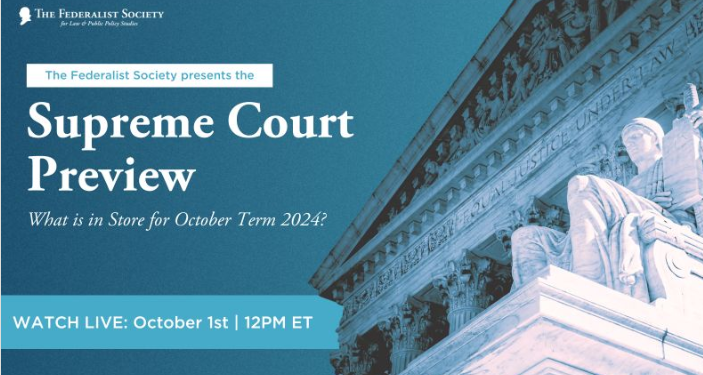 https://patomak.com/wp-content/uploads/2024/10/Supreme-Court-Preview-1.png
396
703
Katherine McCarthy
https://patomak.com/wp-content/uploads/2022/12/PGP-Header-Logo-Stacked.png
Katherine McCarthy2024-10-04 16:50:262024-10-04 16:54:35Panel Discussion Featuring Paul Atkins
https://patomak.com/wp-content/uploads/2024/10/Supreme-Court-Preview-1.png
396
703
Katherine McCarthy
https://patomak.com/wp-content/uploads/2022/12/PGP-Header-Logo-Stacked.png
Katherine McCarthy2024-10-04 16:50:262024-10-04 16:54:35Panel Discussion Featuring Paul Atkins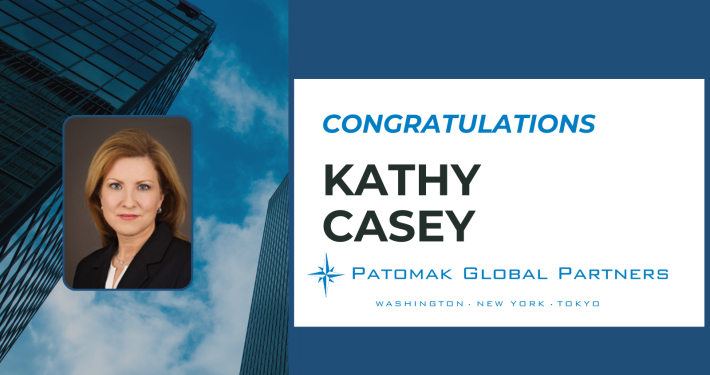 https://patomak.com/wp-content/uploads/2024/09/Patomak-Insights-Images-3.png
1000
1600
Katherine McCarthy
https://patomak.com/wp-content/uploads/2022/12/PGP-Header-Logo-Stacked.png
Katherine McCarthy2024-09-27 15:43:112024-10-18 16:07:15Kathy Casey Joins CAQ Governing Board
https://patomak.com/wp-content/uploads/2024/09/Patomak-Insights-Images-3.png
1000
1600
Katherine McCarthy
https://patomak.com/wp-content/uploads/2022/12/PGP-Header-Logo-Stacked.png
Katherine McCarthy2024-09-27 15:43:112024-10-18 16:07:15Kathy Casey Joins CAQ Governing Board https://patomak.com/wp-content/uploads/2024/10/silhouettes-of-people-at-a-bank.jpg
813
1280
Keith Noreika
https://patomak.com/wp-content/uploads/2022/12/PGP-Header-Logo-Stacked.png
Keith Noreika2024-09-19 17:03:472024-10-04 17:13:42Keith Noreika Quoted in Semafor
https://patomak.com/wp-content/uploads/2024/10/silhouettes-of-people-at-a-bank.jpg
813
1280
Keith Noreika
https://patomak.com/wp-content/uploads/2022/12/PGP-Header-Logo-Stacked.png
Keith Noreika2024-09-19 17:03:472024-10-04 17:13:42Keith Noreika Quoted in Semafor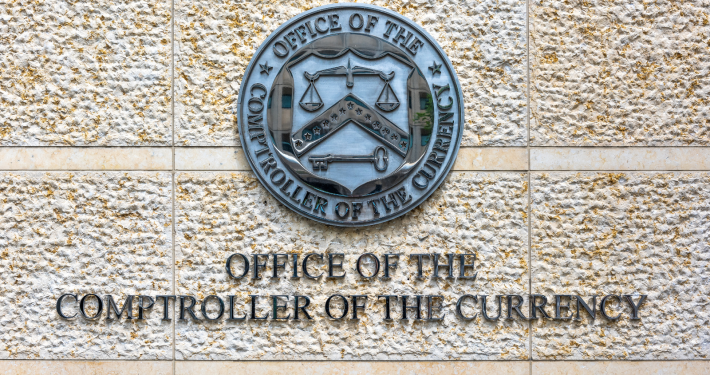 https://patomak.com/wp-content/uploads/2022/08/Senators-Pressure-OCC-to-Rescind-Crypto-Bank-Guidance-Adding-Regulatory-Uncertainty.png
1000
1600
Katherine McCarthy
https://patomak.com/wp-content/uploads/2022/12/PGP-Header-Logo-Stacked.png
Katherine McCarthy2024-08-28 16:54:472024-10-04 16:58:34Keith Noreika Quoted in American Banker
https://patomak.com/wp-content/uploads/2022/08/Senators-Pressure-OCC-to-Rescind-Crypto-Bank-Guidance-Adding-Regulatory-Uncertainty.png
1000
1600
Katherine McCarthy
https://patomak.com/wp-content/uploads/2022/12/PGP-Header-Logo-Stacked.png
Katherine McCarthy2024-08-28 16:54:472024-10-04 16:58:34Keith Noreika Quoted in American Banker
 https://patomak.com/wp-content/uploads/2025/04/february-6-2024-2.png
1000
1600
Patomak Global Partners
https://patomak.com/wp-content/uploads/2022/12/PGP-Header-Logo-Stacked.png
Patomak Global Partners2025-04-22 17:05:302025-04-22 17:22:08Patomak Global Partners Announces New Supervisory Board and Executive Committee
https://patomak.com/wp-content/uploads/2025/04/february-6-2024-2.png
1000
1600
Patomak Global Partners
https://patomak.com/wp-content/uploads/2022/12/PGP-Header-Logo-Stacked.png
Patomak Global Partners2025-04-22 17:05:302025-04-22 17:22:08Patomak Global Partners Announces New Supervisory Board and Executive Committee
 https://patomak.com/wp-content/uploads/2024/10/may-23-2024-1.png
1000
1600
Katherine McCarthy
https://patomak.com/wp-content/uploads/2022/12/PGP-Header-Logo-Stacked.png
Katherine McCarthy2024-10-29 13:31:192024-11-21 13:42:35Robert Greene Quoted in Foreign Policy
https://patomak.com/wp-content/uploads/2024/10/may-23-2024-1.png
1000
1600
Katherine McCarthy
https://patomak.com/wp-content/uploads/2022/12/PGP-Header-Logo-Stacked.png
Katherine McCarthy2024-10-29 13:31:192024-11-21 13:42:35Robert Greene Quoted in Foreign Policy https://patomak.com/wp-content/uploads/2024/10/NSCP-National-Conference.png
450
1076
Katherine McCarthy
https://patomak.com/wp-content/uploads/2022/12/PGP-Header-Logo-Stacked.png
Katherine McCarthy2024-10-18 15:40:462024-10-18 15:41:44Laura Magyar at NSCP Conference
https://patomak.com/wp-content/uploads/2024/10/NSCP-National-Conference.png
450
1076
Katherine McCarthy
https://patomak.com/wp-content/uploads/2022/12/PGP-Header-Logo-Stacked.png
Katherine McCarthy2024-10-18 15:40:462024-10-18 15:41:44Laura Magyar at NSCP Conference https://patomak.com/wp-content/uploads/2024/10/Supreme-Court-Preview-1.png
396
703
Katherine McCarthy
https://patomak.com/wp-content/uploads/2022/12/PGP-Header-Logo-Stacked.png
Katherine McCarthy2024-10-04 16:50:262024-10-04 16:54:35Panel Discussion Featuring Paul Atkins
https://patomak.com/wp-content/uploads/2024/10/Supreme-Court-Preview-1.png
396
703
Katherine McCarthy
https://patomak.com/wp-content/uploads/2022/12/PGP-Header-Logo-Stacked.png
Katherine McCarthy2024-10-04 16:50:262024-10-04 16:54:35Panel Discussion Featuring Paul Atkins https://patomak.com/wp-content/uploads/2024/09/Patomak-Insights-Images-3.png
1000
1600
Katherine McCarthy
https://patomak.com/wp-content/uploads/2022/12/PGP-Header-Logo-Stacked.png
Katherine McCarthy2024-09-27 15:43:112024-10-18 16:07:15Kathy Casey Joins CAQ Governing Board
https://patomak.com/wp-content/uploads/2024/09/Patomak-Insights-Images-3.png
1000
1600
Katherine McCarthy
https://patomak.com/wp-content/uploads/2022/12/PGP-Header-Logo-Stacked.png
Katherine McCarthy2024-09-27 15:43:112024-10-18 16:07:15Kathy Casey Joins CAQ Governing Board https://patomak.com/wp-content/uploads/2024/10/silhouettes-of-people-at-a-bank.jpg
813
1280
Keith Noreika
https://patomak.com/wp-content/uploads/2022/12/PGP-Header-Logo-Stacked.png
Keith Noreika2024-09-19 17:03:472024-10-04 17:13:42Keith Noreika Quoted in Semafor
https://patomak.com/wp-content/uploads/2024/10/silhouettes-of-people-at-a-bank.jpg
813
1280
Keith Noreika
https://patomak.com/wp-content/uploads/2022/12/PGP-Header-Logo-Stacked.png
Keith Noreika2024-09-19 17:03:472024-10-04 17:13:42Keith Noreika Quoted in Semafor https://patomak.com/wp-content/uploads/2022/08/Senators-Pressure-OCC-to-Rescind-Crypto-Bank-Guidance-Adding-Regulatory-Uncertainty.png
1000
1600
Katherine McCarthy
https://patomak.com/wp-content/uploads/2022/12/PGP-Header-Logo-Stacked.png
Katherine McCarthy2024-08-28 16:54:472024-10-04 16:58:34Keith Noreika Quoted in American Banker
https://patomak.com/wp-content/uploads/2022/08/Senators-Pressure-OCC-to-Rescind-Crypto-Bank-Guidance-Adding-Regulatory-Uncertainty.png
1000
1600
Katherine McCarthy
https://patomak.com/wp-content/uploads/2022/12/PGP-Header-Logo-Stacked.png
Katherine McCarthy2024-08-28 16:54:472024-10-04 16:58:34Keith Noreika Quoted in American Banker
 https://patomak.com/wp-content/uploads/2025/04/february-6-2024-2.png
1000
1600
Patomak Global Partners
https://patomak.com/wp-content/uploads/2022/12/PGP-Header-Logo-Stacked.png
Patomak Global Partners2025-04-22 17:05:302025-04-22 17:22:08Patomak Global Partners Announces New Supervisory Board and Executive Committee
https://patomak.com/wp-content/uploads/2025/04/february-6-2024-2.png
1000
1600
Patomak Global Partners
https://patomak.com/wp-content/uploads/2022/12/PGP-Header-Logo-Stacked.png
Patomak Global Partners2025-04-22 17:05:302025-04-22 17:22:08Patomak Global Partners Announces New Supervisory Board and Executive Committee
 https://patomak.com/wp-content/uploads/2024/10/may-23-2024-1.png
1000
1600
Katherine McCarthy
https://patomak.com/wp-content/uploads/2022/12/PGP-Header-Logo-Stacked.png
Katherine McCarthy2024-10-29 13:31:192024-11-21 13:42:35Robert Greene Quoted in Foreign Policy
https://patomak.com/wp-content/uploads/2024/10/may-23-2024-1.png
1000
1600
Katherine McCarthy
https://patomak.com/wp-content/uploads/2022/12/PGP-Header-Logo-Stacked.png
Katherine McCarthy2024-10-29 13:31:192024-11-21 13:42:35Robert Greene Quoted in Foreign Policy https://patomak.com/wp-content/uploads/2024/10/NSCP-National-Conference.png
450
1076
Katherine McCarthy
https://patomak.com/wp-content/uploads/2022/12/PGP-Header-Logo-Stacked.png
Katherine McCarthy2024-10-18 15:40:462024-10-18 15:41:44Laura Magyar at NSCP Conference
https://patomak.com/wp-content/uploads/2024/10/NSCP-National-Conference.png
450
1076
Katherine McCarthy
https://patomak.com/wp-content/uploads/2022/12/PGP-Header-Logo-Stacked.png
Katherine McCarthy2024-10-18 15:40:462024-10-18 15:41:44Laura Magyar at NSCP Conference https://patomak.com/wp-content/uploads/2024/10/Supreme-Court-Preview-1.png
396
703
Katherine McCarthy
https://patomak.com/wp-content/uploads/2022/12/PGP-Header-Logo-Stacked.png
Katherine McCarthy2024-10-04 16:50:262024-10-04 16:54:35Panel Discussion Featuring Paul Atkins
https://patomak.com/wp-content/uploads/2024/10/Supreme-Court-Preview-1.png
396
703
Katherine McCarthy
https://patomak.com/wp-content/uploads/2022/12/PGP-Header-Logo-Stacked.png
Katherine McCarthy2024-10-04 16:50:262024-10-04 16:54:35Panel Discussion Featuring Paul Atkins https://patomak.com/wp-content/uploads/2024/09/Patomak-Insights-Images-3.png
1000
1600
Katherine McCarthy
https://patomak.com/wp-content/uploads/2022/12/PGP-Header-Logo-Stacked.png
Katherine McCarthy2024-09-27 15:43:112024-10-18 16:07:15Kathy Casey Joins CAQ Governing Board
https://patomak.com/wp-content/uploads/2024/09/Patomak-Insights-Images-3.png
1000
1600
Katherine McCarthy
https://patomak.com/wp-content/uploads/2022/12/PGP-Header-Logo-Stacked.png
Katherine McCarthy2024-09-27 15:43:112024-10-18 16:07:15Kathy Casey Joins CAQ Governing Board https://patomak.com/wp-content/uploads/2024/10/silhouettes-of-people-at-a-bank.jpg
813
1280
Keith Noreika
https://patomak.com/wp-content/uploads/2022/12/PGP-Header-Logo-Stacked.png
Keith Noreika2024-09-19 17:03:472024-10-04 17:13:42Keith Noreika Quoted in Semafor
https://patomak.com/wp-content/uploads/2024/10/silhouettes-of-people-at-a-bank.jpg
813
1280
Keith Noreika
https://patomak.com/wp-content/uploads/2022/12/PGP-Header-Logo-Stacked.png
Keith Noreika2024-09-19 17:03:472024-10-04 17:13:42Keith Noreika Quoted in Semafor https://patomak.com/wp-content/uploads/2022/08/Senators-Pressure-OCC-to-Rescind-Crypto-Bank-Guidance-Adding-Regulatory-Uncertainty.png
1000
1600
Katherine McCarthy
https://patomak.com/wp-content/uploads/2022/12/PGP-Header-Logo-Stacked.png
Katherine McCarthy2024-08-28 16:54:472024-10-04 16:58:34Keith Noreika Quoted in American Banker
https://patomak.com/wp-content/uploads/2022/08/Senators-Pressure-OCC-to-Rescind-Crypto-Bank-Guidance-Adding-Regulatory-Uncertainty.png
1000
1600
Katherine McCarthy
https://patomak.com/wp-content/uploads/2022/12/PGP-Header-Logo-Stacked.png
Katherine McCarthy2024-08-28 16:54:472024-10-04 16:58:34Keith Noreika Quoted in American Banker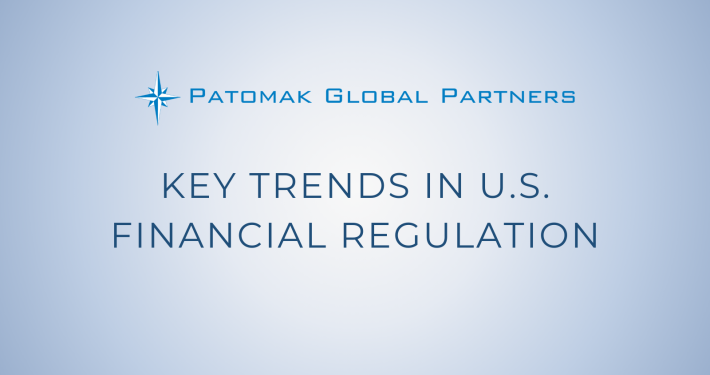 https://patomak.com/wp-content/uploads/2024/05/may-23-2024.png
1000
1600
Malin Phelan
https://patomak.com/wp-content/uploads/2022/12/PGP-Header-Logo-Stacked.png
Malin Phelan2024-05-23 15:56:352024-07-22 10:53:44Key Trends in U.S. Financial Regulation
https://patomak.com/wp-content/uploads/2024/05/may-23-2024.png
1000
1600
Malin Phelan
https://patomak.com/wp-content/uploads/2022/12/PGP-Header-Logo-Stacked.png
Malin Phelan2024-05-23 15:56:352024-07-22 10:53:44Key Trends in U.S. Financial Regulation
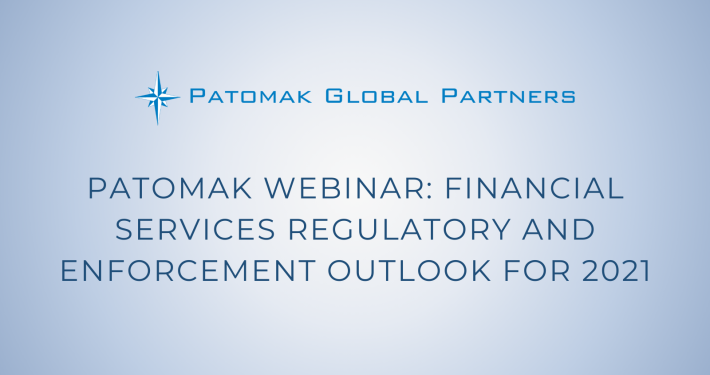
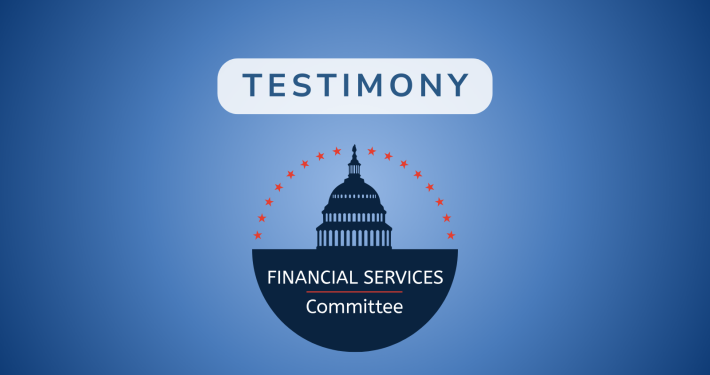 https://patomak.com/wp-content/uploads/2016/05/U.S.-House-Financial-Services-Subcommittee-Testimony-by-Dan-Gallagher-1.png
1000
1600
Patomak Global Partners
https://patomak.com/wp-content/uploads/2022/12/PGP-Header-Logo-Stacked.png
Patomak Global Partners2016-05-17 19:01:002024-07-29 15:14:54U.S. House Financial Services Subcommittee Testimony by Dan Gallagher
https://patomak.com/wp-content/uploads/2016/05/U.S.-House-Financial-Services-Subcommittee-Testimony-by-Dan-Gallagher-1.png
1000
1600
Patomak Global Partners
https://patomak.com/wp-content/uploads/2022/12/PGP-Header-Logo-Stacked.png
Patomak Global Partners2016-05-17 19:01:002024-07-29 15:14:54U.S. House Financial Services Subcommittee Testimony by Dan Gallagher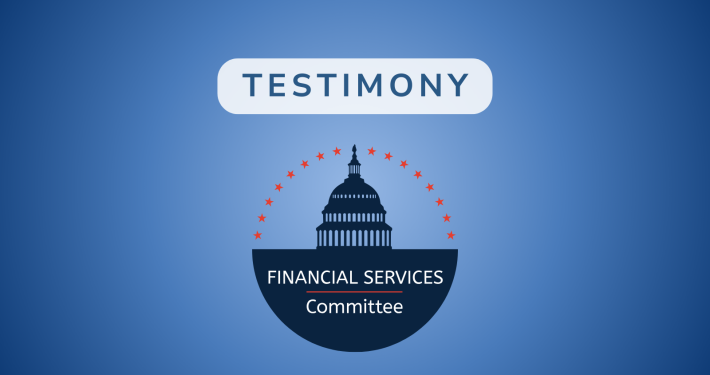 https://patomak.com/wp-content/uploads/2016/04/U.S.-House-Financial-Services-Committee-Testimony-by-Paul-Atkins.png
1000
1600
Paul Atkins
https://patomak.com/wp-content/uploads/2022/12/PGP-Header-Logo-Stacked.png
Paul Atkins2016-04-14 14:00:002024-07-31 13:39:21U.S. House Financial Services Committee Testimony by Paul Atkins
https://patomak.com/wp-content/uploads/2016/04/U.S.-House-Financial-Services-Committee-Testimony-by-Paul-Atkins.png
1000
1600
Paul Atkins
https://patomak.com/wp-content/uploads/2022/12/PGP-Header-Logo-Stacked.png
Paul Atkins2016-04-14 14:00:002024-07-31 13:39:21U.S. House Financial Services Committee Testimony by Paul Atkins
 https://patomak.com/wp-content/uploads/2024/05/may-23-2024.png
1000
1600
Malin Phelan
https://patomak.com/wp-content/uploads/2022/12/PGP-Header-Logo-Stacked.png
Malin Phelan2024-05-23 15:56:352024-07-22 10:53:44Key Trends in U.S. Financial Regulation
https://patomak.com/wp-content/uploads/2024/05/may-23-2024.png
1000
1600
Malin Phelan
https://patomak.com/wp-content/uploads/2022/12/PGP-Header-Logo-Stacked.png
Malin Phelan2024-05-23 15:56:352024-07-22 10:53:44Key Trends in U.S. Financial Regulation

 https://patomak.com/wp-content/uploads/2016/05/U.S.-House-Financial-Services-Subcommittee-Testimony-by-Dan-Gallagher-1.png
1000
1600
Patomak Global Partners
https://patomak.com/wp-content/uploads/2022/12/PGP-Header-Logo-Stacked.png
Patomak Global Partners2016-05-17 19:01:002024-07-29 15:14:54U.S. House Financial Services Subcommittee Testimony by Dan Gallagher
https://patomak.com/wp-content/uploads/2016/05/U.S.-House-Financial-Services-Subcommittee-Testimony-by-Dan-Gallagher-1.png
1000
1600
Patomak Global Partners
https://patomak.com/wp-content/uploads/2022/12/PGP-Header-Logo-Stacked.png
Patomak Global Partners2016-05-17 19:01:002024-07-29 15:14:54U.S. House Financial Services Subcommittee Testimony by Dan Gallagher https://patomak.com/wp-content/uploads/2016/04/U.S.-House-Financial-Services-Committee-Testimony-by-Paul-Atkins.png
1000
1600
Paul Atkins
https://patomak.com/wp-content/uploads/2022/12/PGP-Header-Logo-Stacked.png
Paul Atkins2016-04-14 14:00:002024-07-31 13:39:21U.S. House Financial Services Committee Testimony by Paul Atkins
https://patomak.com/wp-content/uploads/2016/04/U.S.-House-Financial-Services-Committee-Testimony-by-Paul-Atkins.png
1000
1600
Paul Atkins
https://patomak.com/wp-content/uploads/2022/12/PGP-Header-Logo-Stacked.png
Paul Atkins2016-04-14 14:00:002024-07-31 13:39:21U.S. House Financial Services Committee Testimony by Paul Atkins
 https://patomak.com/wp-content/uploads/2024/05/may-23-2024.png
1000
1600
Malin Phelan
https://patomak.com/wp-content/uploads/2022/12/PGP-Header-Logo-Stacked.png
Malin Phelan2024-05-23 15:56:352024-07-22 10:53:44Key Trends in U.S. Financial Regulation
https://patomak.com/wp-content/uploads/2024/05/may-23-2024.png
1000
1600
Malin Phelan
https://patomak.com/wp-content/uploads/2022/12/PGP-Header-Logo-Stacked.png
Malin Phelan2024-05-23 15:56:352024-07-22 10:53:44Key Trends in U.S. Financial Regulation

 https://patomak.com/wp-content/uploads/2016/05/U.S.-House-Financial-Services-Subcommittee-Testimony-by-Dan-Gallagher-1.png
1000
1600
Patomak Global Partners
https://patomak.com/wp-content/uploads/2022/12/PGP-Header-Logo-Stacked.png
Patomak Global Partners2016-05-17 19:01:002024-07-29 15:14:54U.S. House Financial Services Subcommittee Testimony by Dan Gallagher
https://patomak.com/wp-content/uploads/2016/05/U.S.-House-Financial-Services-Subcommittee-Testimony-by-Dan-Gallagher-1.png
1000
1600
Patomak Global Partners
https://patomak.com/wp-content/uploads/2022/12/PGP-Header-Logo-Stacked.png
Patomak Global Partners2016-05-17 19:01:002024-07-29 15:14:54U.S. House Financial Services Subcommittee Testimony by Dan Gallagher https://patomak.com/wp-content/uploads/2016/04/U.S.-House-Financial-Services-Committee-Testimony-by-Paul-Atkins.png
1000
1600
Paul Atkins
https://patomak.com/wp-content/uploads/2022/12/PGP-Header-Logo-Stacked.png
Paul Atkins2016-04-14 14:00:002024-07-31 13:39:21U.S. House Financial Services Committee Testimony by Paul Atkins
https://patomak.com/wp-content/uploads/2016/04/U.S.-House-Financial-Services-Committee-Testimony-by-Paul-Atkins.png
1000
1600
Paul Atkins
https://patomak.com/wp-content/uploads/2022/12/PGP-Header-Logo-Stacked.png
Paul Atkins2016-04-14 14:00:002024-07-31 13:39:21U.S. House Financial Services Committee Testimony by Paul Atkins
We advise clients on cutting-edge strategy and risk management challenges. See what we can do for you.
This site uses cookies. By continuing to browse the site, you are agreeing to our use of cookies.
Accept settingsHide notificationWe may request cookies to be set on your device. We use cookies to let us know when you visit our websites, how you interact with us, to enrich your user experience, and to customize your relationship with our website.
Click on the different category headings to find out more. You can also change some of your preferences. Note that blocking some types of cookies may impact your experience on our websites and the services we are able to offer.
These cookies are strictly necessary to provide you with services available through our website and to use some of its features.
Because these cookies are strictly necessary to deliver the website, refusing them will have impact how our site functions. You always can block or delete cookies by changing your browser settings and force blocking all cookies on this website. But this will always prompt you to accept/refuse cookies when revisiting our site.
We fully respect if you want to refuse cookies but to avoid asking you again and again kindly allow us to store a cookie for that. You are free to opt out any time or opt in for other cookies to get a better experience. If you refuse cookies we will remove all set cookies in our domain.
We provide you with a list of stored cookies on your computer in our domain so you can check what we stored. Due to security reasons we are not able to show or modify cookies from other domains. You can check these in your browser security settings.
These cookies collect information that is used either in aggregate form to help us understand how our website is being used or how effective our marketing campaigns are, or to help us customize our website and application for you in order to enhance your experience.
If you do not want that we track your visit to our site you can disable tracking in your browser here:
We also use different external services like Google Webfonts, Google Maps, and external Video providers. Since these providers may collect personal data like your IP address we allow you to block them here. Please be aware that this might heavily reduce the functionality and appearance of our site. Changes will take effect once you reload the page.
Google Webfont Settings:
Google Map Settings:
Google reCaptcha Settings:
Vimeo and Youtube video embeds:
The following cookies are also needed - You can choose if you want to allow them:
You can read about our cookies and privacy settings in detail on our Privacy Policy Page.
Privacy Policy